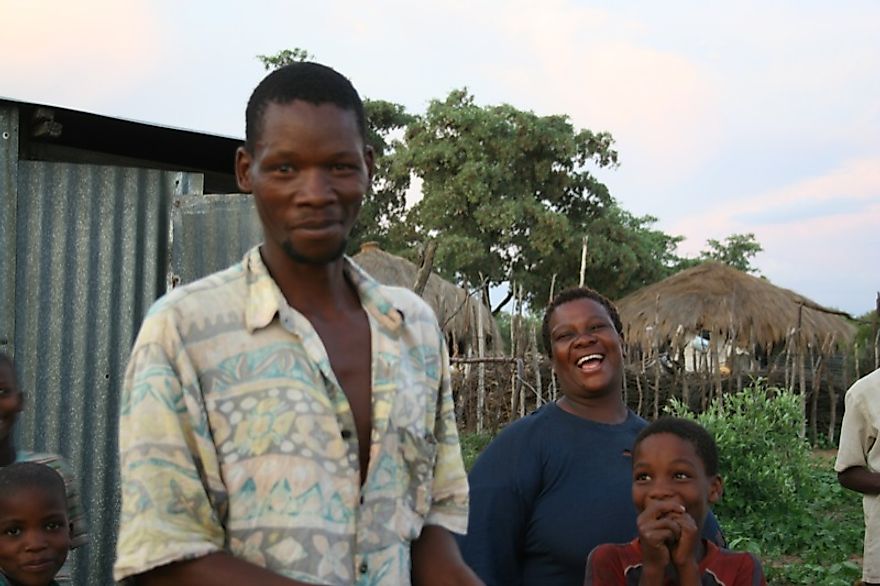The Tswana People Of Southern Africa

5. Early History
The Tswana people in Botswana Botswana are the dominant tribe in the country. They largely influence the country's culture, societal fabric, and economy.The Tswana people are believed to have originated from East Africa according to South African History Online (SAHO), in today’s Tanzania. The first evidence of their existence dates back to between 1300 to 1500. The discovery of pottery named Icon dating back to this time is evidence of this fact. Then, the Tswana people were part of the larger Sotho ethnicity. By 1500 Sotho disintegrated into three clusters with similar dialects, beliefs, and societal structure. Differences between the clusters developed at a much later stage during the early 19th century due to wars, migration, and political disruptions, dubbed difiqane according to SAHO. Today the Tswana people are among the four major ethnic divisions among black South Africans and are classified in the Sotho-Tswana ethnicity category. Within Botswana, Tswana states begun when Hurutshe and Kwena migrants founded the Ngwaketse chiefdom among the Khalaghari-Rolong people in South Eastern Botswana by 1700. For livelihood, they hunted, raised cattle and engaged in copper production.
4. Language and Religion
Tswana people’s native language is Setswana Bantu language. It’s spoken by about four million people of which 1 million are in Botswana, the rest in South Africa. Traditionally, the Tswana people believed in a supreme god they called Modimo. Modimo is regarded as the creator of all things and is also responsible for deciding human destinies. Tswana people believe Modimo uses winds, hail, rain (or lack of it) and death, to express anger at the Tswana people’s departure from their tradition, and right order of things. The Tswana people also believe that Modimo cannot be reached directly but through their ancestors. Witch doctors are regarded as the mediators between the people and the ancestral spirits. In the 19th century, the Tswanas came into contact with Christian missionaries from Europe, and many of them accepted Christianity as their religion. Thus, today large sections of the Tswana people are Christians while some of them stick to their traditional religious belief, or combine it with Christianity.
3. Traditional Work and Recreation
Subsistence farming and herding of goats, cattle and sheep are what the Sotho-Tswana people have relied on, to sustain their livelihoods for ages. Cattle is regarded as a sign of prosperity and is highly valued especially during dowry negotiations. Grains and tobacco are some of the crops they cultivate, but sorghum is the principal crop. Traditional skilled craftsmen of the tribe also produce exquisite metalwork, leatherwork, and wood carved products. For recreation Tswana people perform traditional songs and dances during rituals or ceremonies.
2. European Contact, Colonization, and Independence
European traders and British missionaries first arrived at the Tswana region in the first two decades of the 19th century. Consequently, trade in ivory, furs, and feathers flourished and Christian churches were established. Discovery of diamond and gold in the 1860's and 1870's in Southern Africa also hastened industrialization and colonization. In 1885, the British established the British Bechuanaland that’s Botswana today which was then incorporated into the Union of South Africa in 1910. Union of South Africa in 1910. As a result, Tswana chiefs lost their power. The Tswana people were forced to work in labor mines, and pay taxes to the British crown. Colonization lasted until 1966 when Botswana, then Bechuanaland, got her independence from Britain. Seretse Khama, a descendant of a tribal chief, became the first prime minister according to History World.
1. Modern Threats to the Tswana Culture
Since the arrival of the Europeans in Botswana in the 19th century, there are aspects of the Tswana culture that have progressively eroded over the years. In recent years, the Tswana culture still lives through the Setswana language, spoken by over 70% of Botswana’s population. However, resistance to the Setswana is rising from native speakers of other languages who argue against it being the country’s dominant national native language. Among young people, the popularity of the Setswana language is low, prompting cultural groups in Botswana to make efforts to revive the language.











